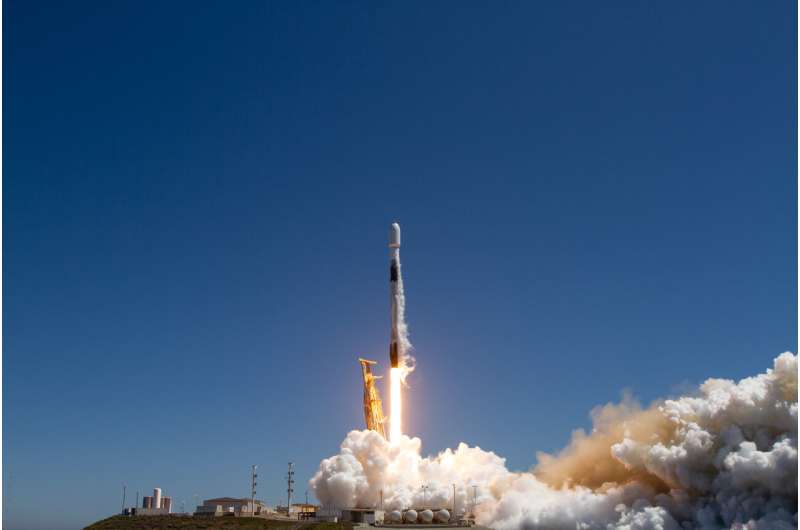
A pair of CubeSats from NASA’s Pathfinder Technology Demonstrator, or PTD, series lifted off on SpaceX’s Transporter-11 rideshare mission at 11:56 a.m. PDT Friday, August 16, from Vandenburg Space Force Base in California. The two small satellites, PTD-4 and PTD-R, will help advance NASA’s efforts to validate novel technologies and increase small spacecraft capabilities in order to shape the future of space exploration and technology.
PTD-4 will demonstrate a high-power, low-volume deployable solar array with an integrated antenna, while PTD-R will focus on testing simultaneous ultraviolet and short-wave infrared optical sensing from space for the first time via two 85-mm aperture monolithic telescopes mounted side-by-side. The two CubeSats use a six-unit (6U) spacecraft, named Triumph, common to all PTD satellites.
L2 Solutions DBA SEOPS LLC secured the launch of the two CubeSats for NASA as part of an award on the agency’s VADR (Venture-class Acquisition of Dedicated and Rideshare) contract. This is part of an effort to embrace more commercial practices to achieve lower launch costs, which provide new opportunities for these small but highly capable small satellites to find a ride to space.
These highly flexible contracts help broaden access to space through lower launch costs and serve as an ideal platform for contributing to NASA’s science research and technology development.
More information:
Learn more about the PTD missions here.
NASA CubeSats launch as commercial rideshares (2024, August 20)
retrieved 21 August 2024
from https://phys.org/news/2024-08-nasa-cubesats-commercial-rideshares.html
part may be reproduced without the written permission. The content is provided for information purposes only.